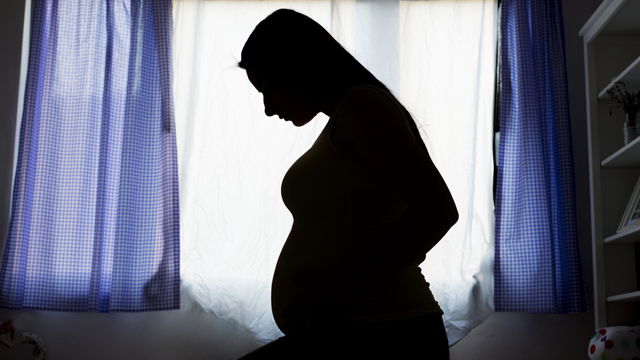 An indigenous women’s group is calling for a review and repeal of local public health ordinances that prohibit and penalize home births.
An indigenous women’s group is calling for a review and repeal of local public health ordinances that prohibit and penalize home births.
At an annual gathering in October 2015, indigenous women from different provinces claimed that they were being threatened with fines, imprisonment and the non-registration of their children for choosing to give birth at home instead of doing so at a birthing facility.
“When the matter was first brought to our attention, women were just worried because of things they had heard. But now local ordinances have been passed prohibiting and punishing home births,” said Judy Pasimio, national coordinator of LILAK Purple Movement for Indigenous Women.
Punishing homebirths
LILAK shared copies of the local health ordinances of Brooke’s Point (Palawan), Midsalip (Zamboanga del Sur), Midsayap (Cotabato) and Cagayan de Oro City (Cagayan de Oro) which all state a fine or imprisonment for home delivery.
1) Brooke’s Point, Palawan
Births must be attended to only by skilled birth attendants such as doctors, nurses or midwives. Traditional birth attendants (TBA or locally known as “hilots”) are prohibited from the practice of birth delivery.
The penalty for violating this ordinance include a minimum fine of P1,000 and imprisonment of not less than 3 months, but not more than 6 months.
2) Midsalip, Zamboanga del Sur
Home deliveries facilitated by a TBA are prohibited except for certain defined exceptions.
In the event of a violation, the mother and other persons assisting or influencing a home delivery will also be sanctioned. The mother will be fined P1,000, the parents, husband, and legal guardian will be fined P2,000 while the TBA will be fined P2,000 for facilitating a home birth without complications. In the event of maternal or neonatal death, the TBA will be fined P5,000.
A Municipal Maternal Investigating Team (MMIT) has been formed as an investigating body that will report cases and findings of home deliveries to the law enforcing agency.
Anyone who has witnessed a home delivery may report the incident to the MMIT for investigation.
3) Midsayap, Cotabato
Penalty for home delivery include a P1,000 fine or the equivalent of 50 hours of community service for the first offense. A third offense resulting in death of the mother or infant will be met with a P2,500 fine or imprisonment of 6 months.
The nearest of kin will also be held liable for failure to bring the pregnant woman to a birthing facility.
4) Cagayan de Oro City, Cagayan de Oro
Home delivery will be met with a fine of P2,000 or community service of 8 hours for 3 days. A fine of P5,000 will be issued for a second offense or other complications. Liability to be determined in legal proceedings.
Decreasing maternal deaths
In 2008, the Department of Health (DOH) issued Administrative Order 0029 known as “Implementing Health Reforms for the Rapid Reduction of Maternal and Neonatal Mortality” which “discouraged home deliveries."

The administrative order recommended facility-based delivery under the supervision and care of a mid-wife to lower the country’s maternal mortality ratio (MMR).
An estimated 60% of all births in the Philippines occur at home. Facility-based delivery under the supervision of a skilled medical professional with access to emergency obstetric care is considered an effective intervention in preventing maternal death.
Annually, more than 500,000 women around the world die from maternity-related causes. Some 99% of these deaths occur in developing countries.
An estimated 10 Filipino women die every day due to birth complications, which are mostly preventable. In the early 90s, MMR in the Philippines was 209 (per 100,000 live births). The Millennium Development Goals (MDG) called for the reduction of maternal deaths to 52. The Philippines did not meet this MDG goal and MMR is estimated to have plateaued at 172.
In an interview, Zenaida Recidoro, DOH program manager for the National Safe Motherhood Program, clarified, “The DOH is not prohibiting home births. The order was meant only to encourage facility-based deliveries.”
However, under the devolved health system, the local government units have the autonomy to develop and implement their own health programs - based on their own interpretation of the DOH order.
“We need the support of the LGUs for any of our DOH programs - from immunization to maternal health. We recognize the support they are extending to help reduce maternal or infant death and they may know better than us (about local program implementation) but these measures are harsh,” said Recidoro.
Recidoro recognized that the choice to deliver at a health facility is influenced by many factors like proximity and geography. “There are areas in the Philippines where you have to walk two hours just to get to the main road or go from one island to another by boat,” added Recidoro.
While the ordinances do not single out indigenous women or their practices, Pasimio said that these ordinances affect IP women most because they ignore the spiritual beliefs and the every day realities of many indigenous women.
“Childbirth for many indigenous women is a deeply personal matter (rather than simply a medical one). For many indigenous peoples, there is a strong belief and attachment to nature. Western medicine is not something they are entirely comfortable with,” said Pasimio.
In addition to this, many birthing facilities are miles away from indigenous communities. Going to a birthing facility would take hours and waiting for actual delivery would take time away from the home and daily livelihood activities.
According to Pasimio, ordinances like this reflect that “even among reproductive health advocates and developmental people, the needs and feelings of indigenous women are not within their consciousness.”
Moratorium
LILAK is calling for a moratorium on the implementation of these ordinances penalizing home births.
Recidoro acknowledged that it is “time to review the policies and revise them, if needed." As a starting point, a forum between the DOH and tribal leaders from different indigenous communities will be conducted some time this January.
“There is a genuine desire to help in these communities, but there are other ways to encourage facility-based delivery. Through an approach that includes all communities, we will arrive at a win-win situation,” said Klaus Beck, country representative of the United Nations Population Fund (UNFPA). - Rappler.com